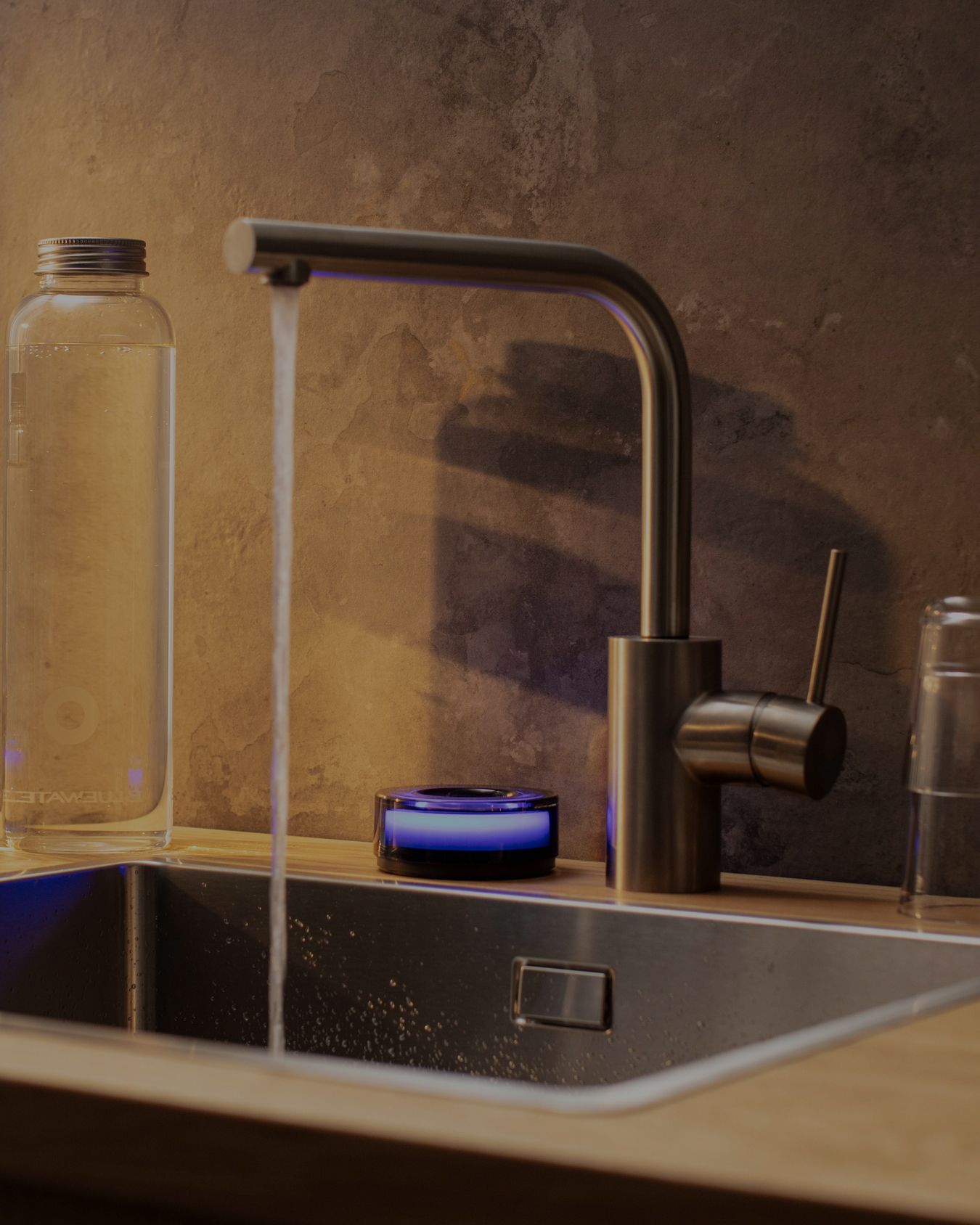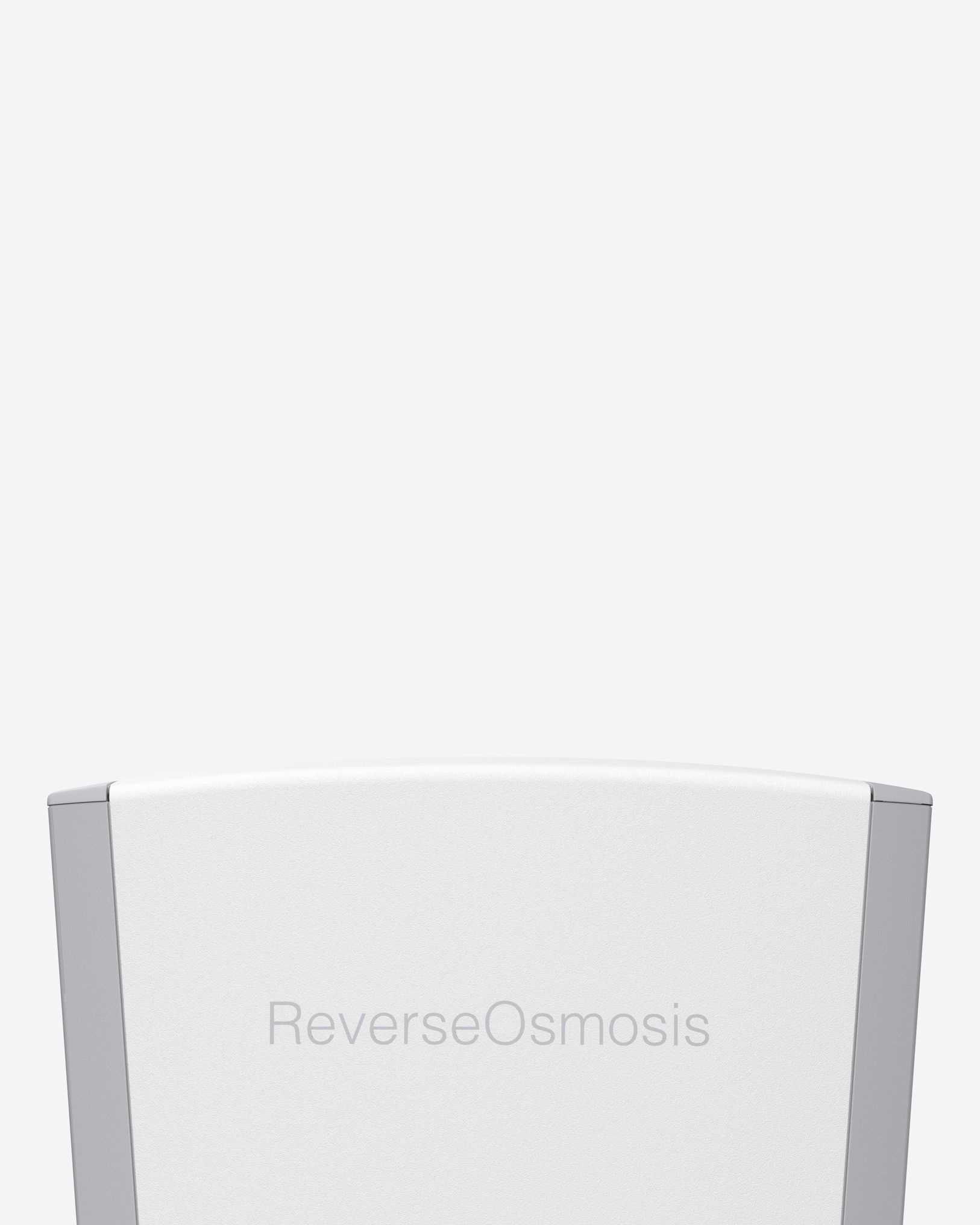Can You Drink Tap Water in London?
Last updated: October 2025
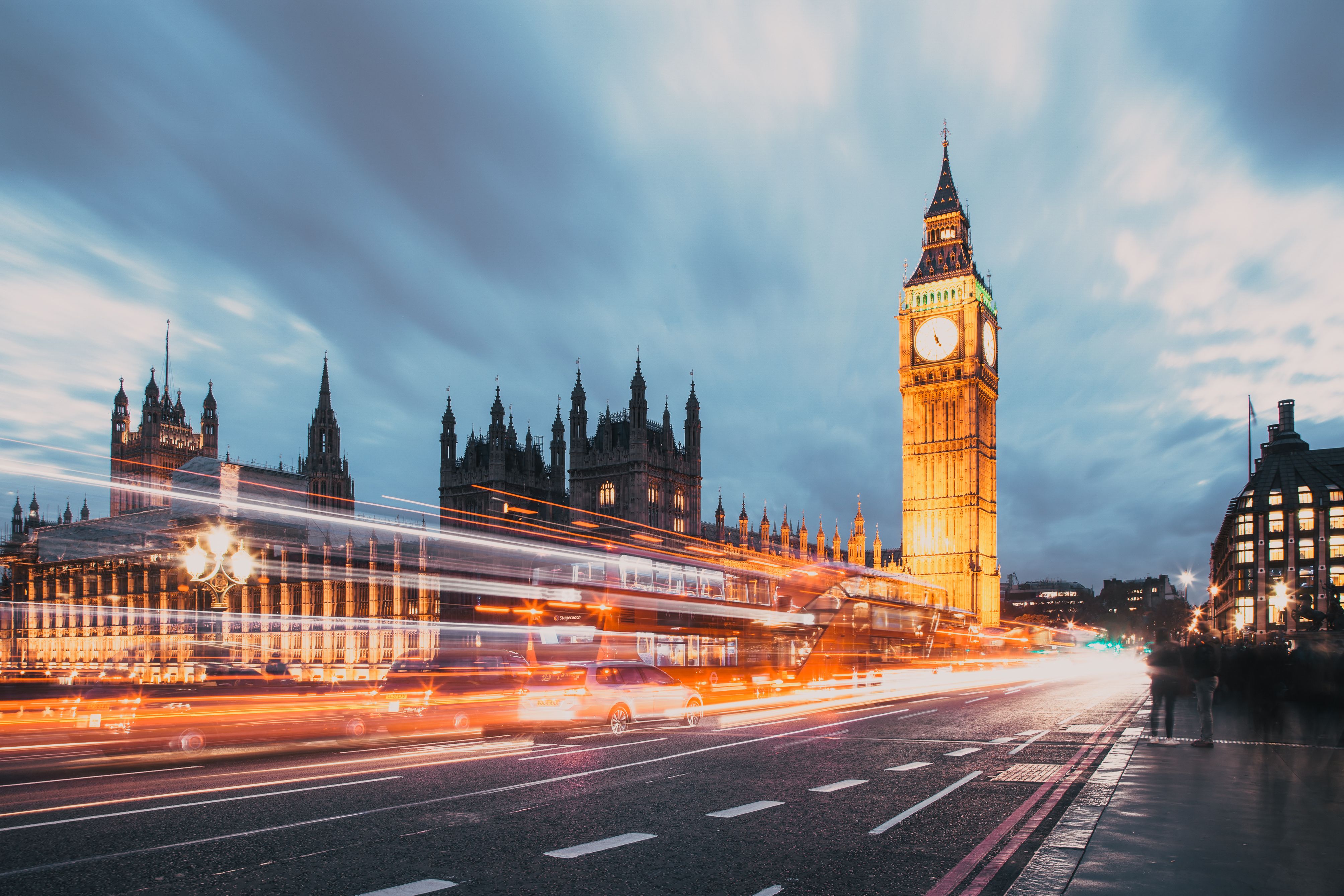
Introduction: Is Tap Water in London Safe to Drink?
London’s tap water meets strict Drinking Water Inspectorate (DWI) and EU standards, meaning it is technically potable water — safe for daily consumption.
However, growing concern about PFAS chemicals, microplastics and tap-water bacteria has made many Londoners wonder: “Is it really the best water to drink?”
According to the DWI, about 99.98% of tap-water samples in England meet required safety standards.
Yet trace levels of substances like chlorine, lead and microplastics can still be found — often affecting what water tastes like and its longer-term health profile.
If you’d like to enjoy pure, mineralised water directly from your tap, consider Bluewater’s Kitchen Station 1™ — a premium home-water filtration system that removes up to 99.7% of contaminants.
Where Does London’s Tap Water Come From?
Approximately 70 % of London’s tap water is sourced from surface reservoirs (including the Thames Water system: River Thames & Lea Valley) while the remaining portion is drawn from underground aquifers and boreholes.
This water undergoes advanced treatment processes such as filtration, chlorination and ozonation before reaching your tap.
Still, ageing pipes and urban runoff can reintroduce bacteria or chemical residues post-treatment. That’s why many households choose to install a home water-filter system for better taste and extra protection.
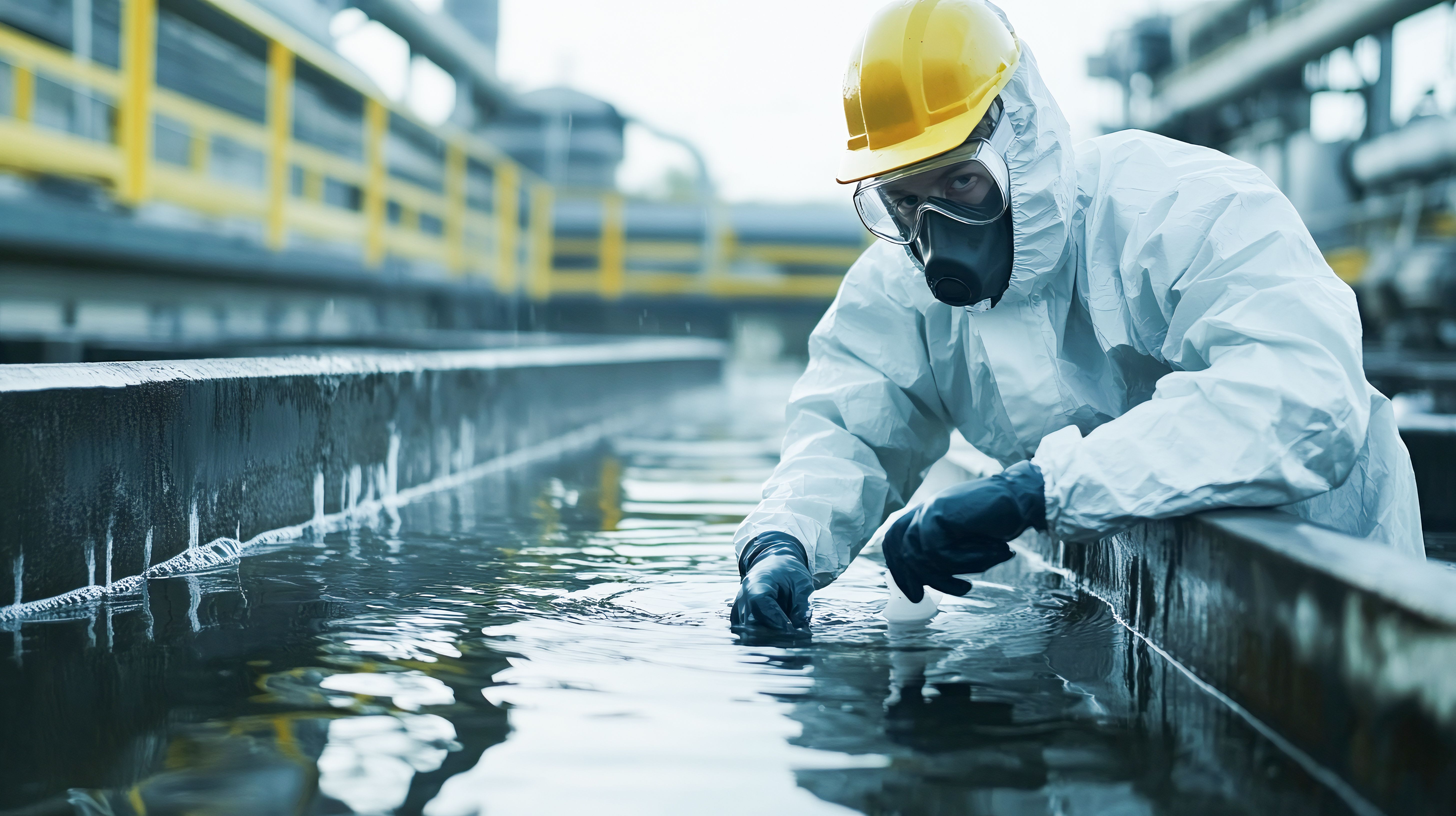
PFAS in London Tap Water: The Hidden Chemical Concern
PFAS (per- and poly-fluoroalkyl substances) are synthetic chemicals used in non-stick cookware, packaging and industrial coatings. They are often called “forever chemicals” because they don’t easily break down and can accumulate in the environment and living organisms.
Health Risks of PFAS Exposure
According to the U.S. Environmental Protection Agency (EPA) and the European Food Safety Authority (EFSA), prolonged exposure may cause hormonal and immune disruption, increased cholesterol levels, higher cancer risks (kidney, testicular) and developmental effects in children.
Even though PFAS levels in UK tap water are low, studies show these substances persist in the environment for decades.
Bluewater’s Kitchen Station 1™ uses SuperiorOsmosis™ technology (reverse-osmosis plus remineralisation) to remove up to 99.7% of PFAS and other harmful chemicals.
Microplastics in Tap Water: Tiny Particles, Big Problem
Microplastics — plastic fragments smaller than 5 mm — have been found in both tap water and bottled water worldwide, including London.
These particles often come from:
- Synthetic clothing fibres
- Cosmetic microbeads
- Degraded plastic packaging
- Urban and industrial waste
EFSA warns that microplastics can carry chemicals or microorganisms which may influence digestion or hormone balance — though research is ongoing.
Installing a home-water filtration system with reverse-osmosis and carbon filtration helps remove these particles before they enter your drinking supply.
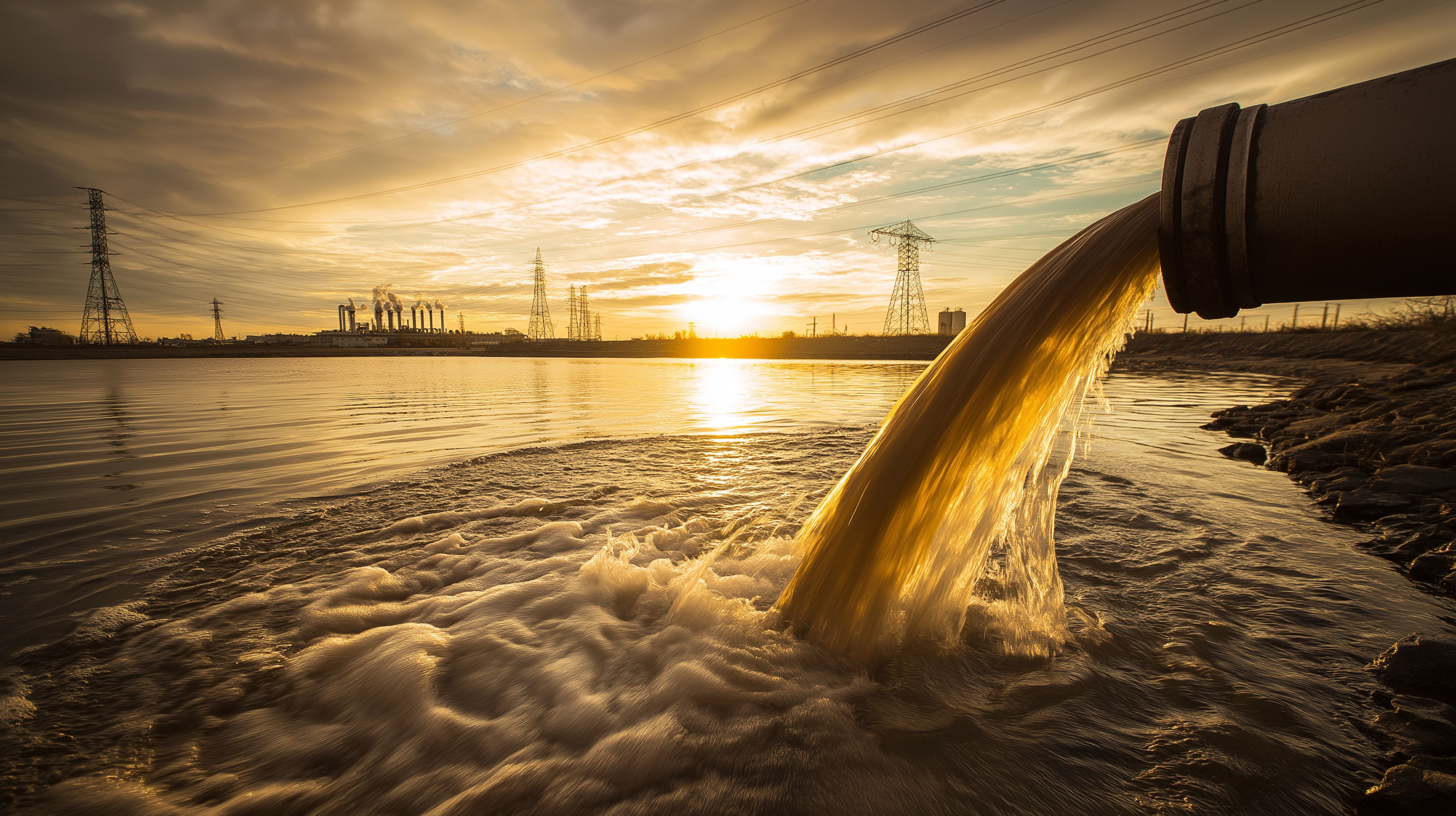
Tap Water Bacteria and Microorganisms
Even though London’s water is disinfected, bacteria can occasionally appear — especially in older plumbing or stagnant pipes.
Common microorganisms include: E. coli and Pseudomonas (potentially harmful) and Lactobacillus (often harmless).
While most bacterial cells are neutral, some can cause minor infections. According to the National Health Service (NHS), boiling water removes bacteria but not PFAS, lead or microplastics — which is why more households are using reverse-osmosis filters or whole-house water-filtration systems for extra protection.
Is London Tap Water Safe to Drink in 2025?
Yes — London’s tap water meets UK and EU law standards. It qualifies as potable water and undergoes regular testing for chemicals, metals and microorganisms.
However, “safe” doesn’t always mean pure or pleasant-tasting. Hard minerals, chlorine and trace substances can affect both flavour and mouthfeel. Using a home-water-filtration system improves both taste and safety.
How to Improve the Taste and Safety of Tap Water
- Install a Home Water-Filtration System
A water filter for home or whole-house filtration system removes chlorine, PFAS and bacteria. Systems like Bluewater’s Kitchen Station 1™ combine reverse-osmosis with remineralisation for great-tasting, pure water. - Maintain Your Plumbing
Regularly clean and replace faucet aerators, and flush your pipes to reduce bacterial buildup. - Test Your Water Quality Periodically
Water quality can vary by borough in London. A quick potable-water test can reveal chlorine, bacteria or heavy metals.

Make Your London Tap Water Drinkable
Bluewater’s Kitchen Station 1™ is designed for those who want the best water to drink — straight from the tap.
Key Benefits:
- Removes harmful contaminants: filters PFAS, microplastics and tap-water bacteria.
- Adds essential minerals: provides pure water with calcium and magnesium.
- Saves money and plastic: replaces bottled beverages with clean, eco-friendly filtered water.
Explore the Kitchen Station 1™ — a compact yet powerful water-purification system trusted across the UK.
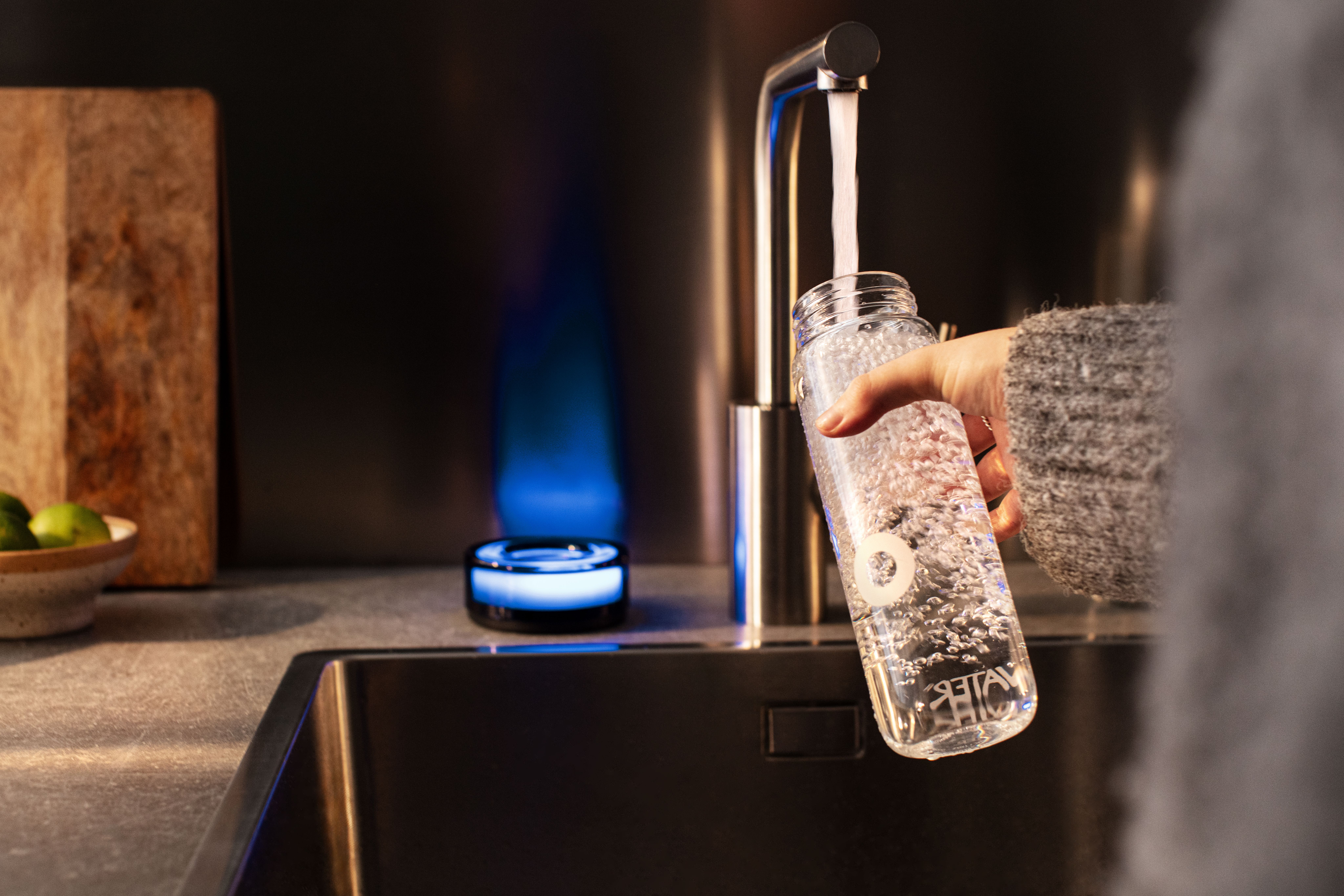
FAQs — Frequently Asked Questions
Is tap water safe to drink in London?
Yes, it meets strict safety standards, though home-filtration ensures even better quality and taste.
Can you drink softened water?
Yes — but it’s not ideal for regular drinking due to higher sodium levels — use filtered water instead.
Does tap water have bacteria?
A small amount of bacteria in water is normal. Most are harmless, but filtration provides peace of mind.
Is tap water safe to drink UK-wide?
Yes — UK tap water is among the best in the world, but filtration enhances safety and taste.
What does water taste like in London?
London water tastes “hard” due to minerals. A home water-filter system reduces limescale and improves flavour.
Is tap water good for you?
It’s healthy and potable, but removing PFAS, chemicals and microplastics makes it even safer and more pleasant to drink.
Conclusion: London Tap Water — Safe, But Can Be Better
London’s tap water is safe to drink, but it’s not perfect. Trace PFAS, microplastics and bacteria can linger, impacting purity and taste.
For the cleanest, pure water every day, invest in a home-water-filtration system like Bluewater’s Kitchen Station 1™ — an eco-friendly, cost-effective solution for Londoners who want the best water to drink, every day.
Author & Expertise
Written by Bluewater Group
Bluewater is a world leader in sustainable water purification. Our patented SuperiorOsmosis™ technology removes up to 99.7% of contaminants, including PFAS, microplastics, and chlorine, delivering filtered water that’s healthy, safe, and delicious.
References
- Drinking Water Inspectorate – PFAS and ‘Forever Chemicals’ guidance
- Royal Society of Chemistry – PFAS in UK Waters: Presence, Detection & Remediation
- Synthetic Microplastics in UK Tap and Bottled Water; Implications for Human Exposure
- How are Microplastics Regulated in the UK and European Union?
- Poly and Per- and Poly-fluoroalkyl Substances (PFAS) – Guidance (2025)
